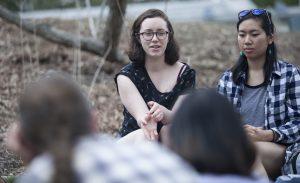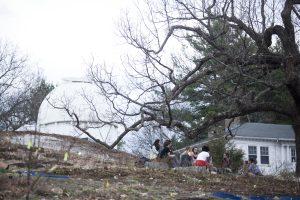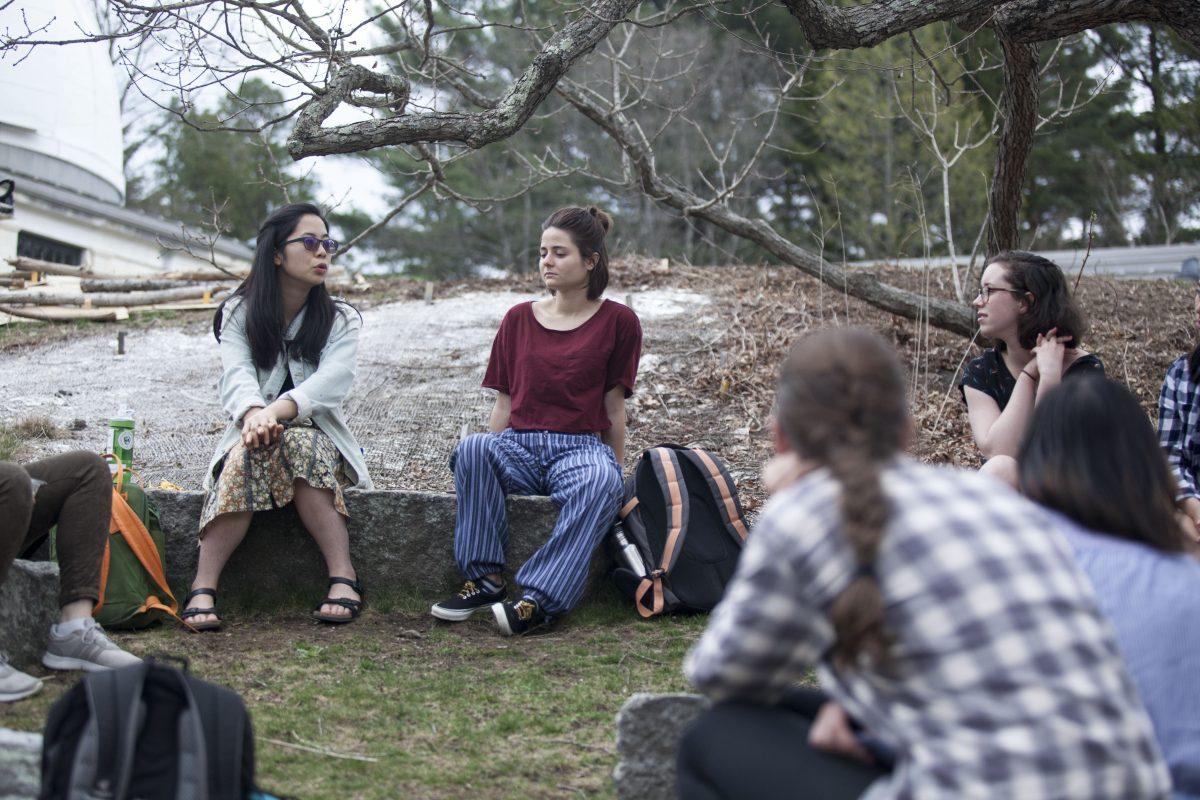Rumors have been circulating about the future of the Office of Sustainability in light of a recent announcement that Patrick Willoughby, the Director of the Office of Sustainability, will not be returning next year.
According to Nathalie Bolduc ’19, the founder and president of EnAct, a sustainability awareness group on campus, there had also been a rumor on campus that Willoughby would not be replaced, potentially ruining sustainability efforts on campus. Concerned by these rumors, Bolduc met with Dave Chakraborty, the assistant vice president of Facilities and Management.
“Students were particularly concerned that the sustainability sale was being canceled, they were worried about the internship positions, and they were worried about whether there was going to be an office itself,” she said.
Through his meeting with Bolduc, and in a separate interview, Chakraborty confirmed that Willoughby will not be returning next year but also made clear that he will be replaced. “The director of the Office of Sustainability has announced his retirement. We will begin the search for a new director for the Office as soon as possible,” Chakraborty stated.
Chakraborty also denied all other rumored changes and cuts to the office. In particular, he recognized that there have been concerns from students about the possibility of adjustments to eco-representative positions and other student-led sustainability efforts. He stressed that these positions will continue on as before.
“I understand that there is some misinformation out there about student positions, and I would like to take this opportunity to clarify that the students’ roles and involvement will continue as before. The Office will continue to fund all the current positions,” Chakraborty said.

The Chair of the Advisory Committee on Environmental Sustainability (SUST) Yui Suzuki, also confirmed that Willoughby will not be returning next year and that the committee is not sure what changes this will bring to the office, but that it could be an opportunity to make improvements.
“I do think that there is an opportunity to strengthen the Office and to make it more visible to the campus community. Sustainability needs to be better integrated into the institutional decision-making, and I think the administration recognizes this as well. This isn’t an easy task especially given the relevance of sustainability in so many different functions of the college, so we will need to think carefully about how we can make the Office more effective to support the college’s sustainability efforts,” Suzuki commented.
Chakraborty echoed these comments, saying that the administration will continue to work with SUST. He also confirmed the need for sustainability to be more seamlessly integrated into campus.
“At a minimum, the same number of staff and students will work in the Office, and we are considering a centralized location for the Office. The Office of Sustainability will engage in facilitating sustainable actions in teaching, research, built habitat and all support functions,” he said.

Chakraborty also said that for the time being, he will be focused on helping the college continue implementing its sustainability plan. According to the sustainability plan’s website, it organizes sustainability at Wellesley into eight sectors: “Academic and Co-curricular, Buildings and Water, Climate and Energy, Food and Dining, Landscape and Watershed, Purchasing and Waste and Transportation. Each sector outlines what Wellesley has accomplished in the past and explains strategies and targets for advancing sustainability at Wellesley over the next 10 years.”
“Working closely with the Sustainability Committee, we will develop an action plan to meet the targets established in the Sustainability Plan. We are considering ways to increase funding for projects to reduce the carbon footprint of the college. We will dedicate ourselves to reaching the highest standards set by organizations such as Sierra Club, US Green Building Council and [the American Society of Heating, Refrigeration and Air Conditioning Engineers (ASHRAE),” Chakraborty said.
Suzuki believes that student input is important in the process of decision-making about sustainability and that students should help get to decide who the next Director of Sustainability is. He recommends that students reach out to Chakraborty because he is heading the search for the new director.
“Sustainability means something different for each of us, and I think it is important that students voice their thoughts about what sustainability at Wellesley should look like,” he said.
Chakraborty confirmed that students can reach out to him and added that they can reach out to SUST, their deans, the provost and the president with their concerns as well. In addition, Suzuki announced that SUST will be holding many events in the future in order to gain more student input. He believes that increased campus dialogue about sustainability will ultimately impact the Office of Sustainability positively.
“I think the discussion about the Office of Sustainability is a good place to start thinking about how we want to shape the future of sustainability at the College,” Suzuki commented.
Bolduc agrees that the increased dialogue regarding sustainability on campus will be a positive change on campus.
“Anytime anyone will think about sustainability, I’m happy. I’m hoping that we can keep this positive student energy and involvement going to hold the Office of Sustainability and to hold the administration accountable for their dedication and their promises to sustainability,” she said.






